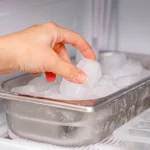Unveiling the Pros and Cons of Two Cleaning Powerhouses
When it comes to household cleaning, both hydrogen peroxide and rubbing alcohol are go-to options. But which one is superior? Let’s pit these cleaning powerhouses against each other, comparing their strengths, weaknesses, and ideal use cases.
Hydrogen Peroxide: The Cleaning Contender
Pros:
- Disinfectant: Hydrogen peroxide is an effective disinfectant, making it ideal for cleaning surfaces and wounds alike.
- Color-Safe: It’s color-safe, making it suitable for cleaning fabrics and colored surfaces without the risk of bleaching.
- Eco-Friendly: Hydrogen peroxide breaks down into water and oxygen, making it an environmentally friendly cleaning option.
Cons:
- Stability: Hydrogen peroxide can degrade when exposed to light, air, or heat, affecting its stability and effectiveness.
- Stain Risk: While color-safe, there’s still a slight risk of hydrogen peroxide causing discoloration on certain materials.
- Odor: Some people find the smell of hydrogen peroxide unpleasant.
Rubbing Alcohol: The Cleaning Challenger
Pros:
- Disinfectant and Degreaser: Rubbing alcohol excels at disinfecting surfaces and cutting through grease, making it suitable for various cleaning tasks.
- Evaporates Quickly: It evaporates quickly, leaving surfaces dry and reducing the risk of water damage.
- Versatility: It can be used on a variety of surfaces, from glass and metal to plastic and electronics.
Cons:
- Flammable: Rubbing alcohol is flammable, requiring caution when using it near open flames or heat sources.
- Strong Odor: It has a strong, distinct odor that may be off-putting for some individuals.
- Potential Surface Damage: On certain surfaces, rubbing alcohol can cause damage, especially on painted or varnished items.
Choosing the Right Cleaning Agent: Considerations
1. Surface Type:
- Hydrogen Peroxide: Ideal for fabrics, colored surfaces, and general disinfecting.
- Rubbing Alcohol: Suitable for hard surfaces, glass, and electronics.
2. Disinfection Needs:
- Hydrogen Peroxide: Effective against bacteria, viruses, and fungi.
- Rubbing Alcohol: Excellent for disinfecting surfaces but may not be as broad-spectrum as hydrogen peroxide.
3. Odor Tolerance:
- Hydrogen Peroxide: Minimal odor compared to rubbing alcohol.
- Rubbing Alcohol: Strong, distinctive smell.
Conclusion: Tailoring Your Cleaning Arsenal
Both hydrogen peroxide and rubbing alcohol have their strengths and weaknesses. The choice between them depends on your specific cleaning needs, the surfaces you’re cleaning, and your personal preferences. Consider having both in your cleaning arsenal, utilizing each for its unique advantages in different scenarios.



